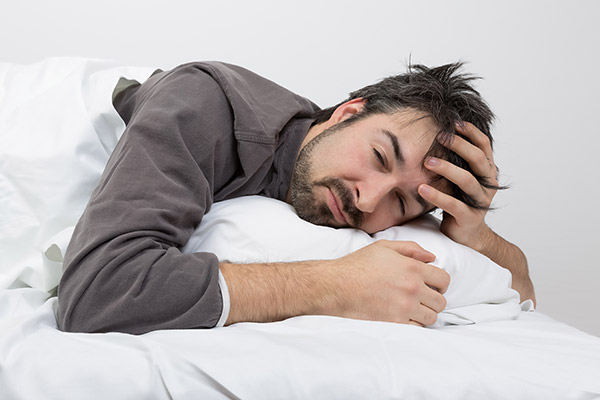Determining if You Have Sleep Apnea
Sleep is an essential part of keeping your body healthy. If your body is well-rested, you’ll be able to concentrate better during the day and likely be happier as well. When your sleep is disrupted, it can affect your REM cycle and create a chemical imbalance in your body and mind.
Sleep apnea is a sleep disorder that causes you to wake up frequently throughout the night gasping for air. It can occur if something is blocking your airway, such as excess neck tissue. The sleep disorder can also be caused when signals from the brain are disrupted during sleep.
There are multiple symptoms of sleep apnea, including daytime grogginess and difficulty focusing.


The Three Types of Sleep Apnea
Everyone experiences sleep apnea differently, and some people’s conditions may be more severe than others. Learn about the three different types to determine which one you may be suffering from.
- Obstructive — the most common and type of sleep apnea. It’s caused when something obstructs your airway and can result in snoring, gasping, and choking.
- Central — occurs when there is disruption in the communication between your brain and muscles. It’s often caused by existing health conditions such as heart failure.
- Complex — a combination of obstructive and central sleep apnea. This may be caused due to an obstruction, but it also affects the brain and may be associated with health problems.

Dangers of Untreated Sleep Apnea
If you suspect that you might have this condition, it’s crucial that you seek treatment as soon as possible. Sleep apnea doesn’t go away on its own, and it can negatively affect your health if you don’t have it treated by a professional.
This sleep disorder can lead to a variety of serious health problems such as stroke, high blood pressure, heart disease, and diabetes. It can also affect your mental health, causing depression, suicidal thoughts, or severe ADHD.
Frequently Asked Questions
What Increases Your Risk of OSA?
Lifestyle choices such as smoking, alcohol and sedative use, as well as certain medical conditions like hypothyroidism, can contribute to airway issues. Nasal congestion, enlarged tonsils or adenoids in children, and hypertension also elevate the risk. It’s important to note that while these factors can increase susceptibility, sleep apnea can affect individuals without these risk factors.
What Should You Do If You Suspect You May Have Sleep Apnea?
Contact Us to Schedule a Consultation
Do you want to learn more about sleep apnea and how oral appliance therapy might be the right fit for you? Contact us today to schedule a free consultation with our Sleep Care
Coordinator.
*Please note: we will ask for a copy of your sleep study, medical insurance, and other information prior to scheduling a consultation.